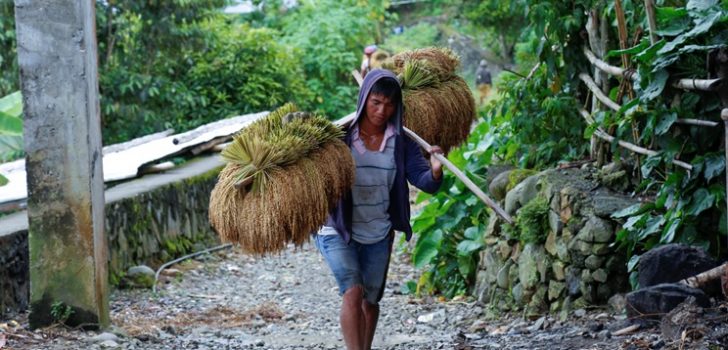
Diminishing Returns – The Burden of Rice Terraces Farming
“A good piece of land will please you more at each visit.”
The quote was attributed to Marcus Cato, an ancient Roman writer and philosopher. “Marcus Cato on Agriculture,” is a very interesting piece of literature and highly recommended to add to your quest of gaining knowledge and insight on the history, concepts and practices of agricultural sustainability and management.
Our ancient ancestors have eloquently written about their land and agriculture in a different light. They composed their good pieces by identifying a suitable lot in the mountains for rice terraces farming. Each visit, they would work out the land and overtime, a whole cluster of terraces are beautifully laid out on the landscape. The land becomes pleasing during each visit which is done several times throughout the year.
Their art of writing, worked out by the hands, does not end with the carving of the slopes of the mountains for rice production. It includes the identification, management and protection of the source of irrigation, timber, fuel, etc. – the watershed. With fresh water, the rice terraces soon produce indigenous fishes, shells, frogs, and water fern vegetables. It is a natural food production machine yielding sufficient food for the community.
Over the years, that story has changed. Food production in the rice terraces are now being carried out under less favorable climatic and economic conditions. Agricultural productivity and sustainability is now confronted with lack of irrigation water, declining soil fertility, loss of biodiversity, and conversion of these lands to other uses, if not, simply abandoned. These challenges are heavy loads that our highland farmers carry on their shoulders every day. They now form the context within which development decisions and interventions for sustainability of the rice terraces will need to be made, and how revisions of the ways and systems in rice terraces farming in these parts are to be designed. – (Text by Robert L. Domoguen, Photo by Elvy Taquio)
